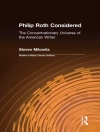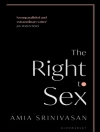Since the beginnings of Italian vernacular literature, the nature of the relationship between Francesco Petrarch and his predecessor Dante Alighieri has remained an open and endlessly fascinating question of both literary and cultural history. In this volume nine leading scholars of Italian medieval literature and culture address this question involving the two foundational figures of Italian literature.
The authors examine Petrarch’s contentious and dismissive attitude toward the literary authority of his illustrious predecessor; the dramatic shift in theological and philosophical context that occurs from Dante to Petrarch; and their respective contributions as initiators of modern literary traditions in the vernacular. Petrarch’s substantive ideological dissent from Dante clearly emerges, a dissent that casts in high relief the poets’ radically divergent views of the relation between the human and the divine and of humans’ capacity to bridge that gap.
Contributors: Albert Russell Ascoli, Zygmunt G. Baranski, Teodolinda Barolini, Theodore J. Cachey, Jr., Ronald L. Martinez, Giuseppe Mazzotta, Christian Moevs, Justin Steinberg, and Sara Sturm-Maddox.
Об авторе
Theodore J. Cachey, Jr., is the Pizzo Family Chair in Dante Studies and Ravarino Family Director of Italian and Dante Studies and the Center for Italian Studies/Devers Family Program in Dante Studies. His numerous publications include Dante’s “Other Works” (co-edited with Zygmunt G. Barański).












